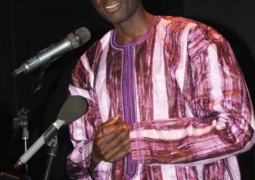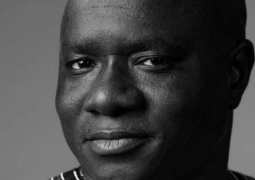
The fourth joint meeting of the African Union Conference of Ministers of Economy and Finance and ECA Conference of African Ministers of Finance, Planning and Economic Development opened yesterday in the Ethiopian capital, Addis Ababa, with calls for structural economic transformation as a condition for sustainable development in Africa.
The call by the Chairperson of the African Union Commission, Dr Jean Ping, and Abdoulie Janneh, United Nations Under Secretary General and the Executive Secretary of the Economic Commission for Africa, comes as ministers settled down to discuss, among others, pressing issues confronting the continent.
The conference on the theme, "Governing Development in Africa" brought together over 60 Ministers from across the continent, experts, academics and senior officials from regional and international organizations, including the UN system and the World Bank.
The theme builds on one of the outcomes of the 2010 conference, which underscored the role of the state in creating the required institutions and making the requisite investment based on a disciplined planning process for the transformation of African economies.
According to Dr Ping and Janneh, to achieve structural economic transformation, African states must provide a clear vision, coordinate change through a planning process, manage distributional conflicts, mitigate investment risks and, in the case of Africa, promote regional integration to overcome the limitations of small, fragmented economies.
The AU Chairperson noted that, if there was a lesson for Africa from the last global financial and economic crisis, it may be that we should tarry a bit before writing off the state as a catalyst for development. The clear lesson from Europe and America, he added, is that the private sector, which many had looked upon as the solution to sustainable growth and development, faced severe problems and had to be rescued by state structures.
"While governments were bailing out the private sector in developed countries, African economies, though similarly hard hit, were showing some resilience.
"Over the last ten years, six of the world's fastest growing economies were in Africa, driven by stellar performance in commodity prices, service trade, countercyclical fiscal policies, stronger private consumption and foreign investment flows," he said, adding that even as the world economy remained mired in crisis, Africa on average grew by 4.5 percent in 2010 up from 2.3 percent in 2009, and will most likely maintain steady growth of about 5 percent in 2011.
"But the story is not all rosy for Africa. The quality of the continent's economic growth is still poor and the economic recovery has not created adequate employment opportunities, one reason Africa's economic growth has not yet translated into significant reduction in poverty levels. Weak global economic growth, limited availability of financing and reduced ODA flows to poor countries will all continue to impact negatively on livelihoods," he stated.
Abdoulie Janneh said the recent political events in Northern Africa, unfulfilled democratic aspirations, high food and fuel prices, as well as widespread unemployment (especially among the youth) which have led to social unrest, will continue to matter for the continent’s growth and development in future.
"This situation must change, and Africa is determined to achieve high level, sustainable, clean and inclusive growth which will create jobs, generate wealth and reduce poverty.
"While there is no silver bullet to accomplish this, we argue that Africa can only achieve sustainable development if it diversifies and reduces its dependence on primary commodities while modernizing agriculture, the largest employer in many African countries," Janneh stated.
He noted that the call for structural transformation of African economies remains one of the most daunting development challenges faced by Africa today.
"Structural transformation itself requires developing and sustaining strong and functional institutions, human capital, and infrastructure. It also requires the good use of technology and innovation, as well as sound macroeconomic, trade and industrial policies. These are things that are not normally provided by the private sector or markets," he added.
He further told delegates that Africa has had clear commitment to development in the past, but the adoption of structural adjustment programmes in the 1980s and 1990 effectively undermined this process.
"While we do not advocate a one-plan-fits-all strategy, it is sufficient to assert that an increased unwavering commitment to accelerating development by Africa states could address institutional, environmental and governance weaknesses as well as market imperfections.
"It will also help rebuild and strengthen state capacity which is required to manage the process. This, in turn, should generate appropriate incentives for economic diversification and transformation, the sine qua non for sustainable growth accompanied with employment creation," Janneh noted.
However, whether this will become a reality or not, experts are of the view that the deliberations and decisions of the conference will certainly be critical for continental economic performance, especially as we approach the 2015 target date for achieving the Millennium Development Goals.
Read Other Articles In Article (Archive)
Black Stars must deliver today
Jul 2, 2010, 11:48 AM




